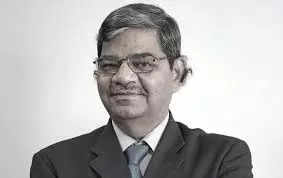[ad_1]

Never before has an auditing standard been at the center of public debate as much as the Standard of Auditing (SA) 600 on group audits, especially following the National Financial Reporting Authority (NFRA) findings on auditors‘ roles in the financial reporting failures of several large corporate groups.
The core issue is whether the principal auditor, responsible for auditing and expressing an opinion on the Consolidated Financial Statement (CFS) of the group, can rely on the work of auditors for group entities, such as subsidiaries, referred to as components. To put it differently, can the principal auditor delegate his responsibility, which, under the Companies Act 2013, he must personally discharge, and if so, in what manner and with what safeguards?
SA 600 vs ISA 600: Whose Responsibility Is It in Group Audits?
The Standard of Auditing (SA) 600, applicable in India, and the corresponding International Standard on Auditing (ISA) 600 address issues related to group audits. According to SA 600, the principal auditor can rely on the work of a component auditor. Group audits under SA 600 are thus somewhat a shared responsibility between the principal auditor and the component auditor. However, under ISA 600, the principal auditor has ultimate responsibility for managing and achieving audit quality and is not even required to mention the component auditor in his audit report.
ISA 600 requires the principal auditor to satisfy himself with the audit evidence obtained by the component auditor for items material to the group and to be responsible for the same. The component auditor acts as a member of the group engagement team while remaining independent. Having the ultimate responsibility with the principal auditor, as under ISA 600, is a preferable approach compared to shared responsibility with the component auditor. This will ensure greater clarity, uniformity in approach and direction, consistency in audit procedures, and focused accountability for audit quality. The collaborative approach in group audits benefits both the principal and component auditors by leveraging each other’s knowledge and experience. The approach under SA 600 should be reconsidered to better align with ISA 600.Is Access to Working Papers of Component Auditors an Issue?
Although SA 600 requires the principal auditor to assess and satisfy himself of the adequacy of the component auditor’s work, it does not provide for access to the component auditor’s working papers. In such cases, the principal auditor should instead perform additional audit procedures, such as visiting the component or examining books of accounts or audit evidence himself. This may lead to duplication of efforts and potential bottlenecks in achieving a seamless quality audit.
A group audit is not merely an aggregation of audit reports from the parent and its components. The focus is on identifying and assessing risks of misstatement in the components that are material to the group’s financial statements as a whole. This requires a collective and collaborative approach. Interaction, communication, and involvement between the principal and component auditors are ongoing from the planning stage to the reporting stage and are elaborately laid out. Typically, access to the component auditor’s working papers should not be required except where the principal auditor has suspicion, doubt, or is otherwise not convinced of the adequacy of audit evidence collected by the component auditor, or for the purpose of group audit documentation (archive).
Moreover, sharing working papers under current auditing standards in India should not be problematic, as, in a group audit, an opinion on consolidated financial statements is required as per legal requirements. Further, obtaining the client’s consent for sharing working papers should not be an issue once the auditing standard requires this. Restrictions on disclosures of client information will apply to the group auditor once he has accessed the working papers. In fact, the SA should also enable reverse access by allowing the component auditor to seek information from the principal auditor, such as audit evidence in cases of suspicious transactions or fraudulent activities involving the parent and other group entities.
Should the Principal Auditor Be the Component Auditor as Well Under SA?
According to both ISA 600 and SA 600, a component can be audited either by the principal auditor or another auditor. However, due to the responsibilities assigned to the principal auditor, there is often a tendency for the principal auditors to insist that he or his firm or network firm be appointed as the auditor for all the significant components at the group level. This practice should be avoided, as having different auditors at the parent and component levels can act as a safeguard against the diversion of funds and other fraudulent activities within multi-layered group entities.
While assuming responsibility for the group audit, the principal auditor needs to be reasonably assured that the component auditor possesses the necessary competence and capability considering the component’s nature, size, complexity, and risk profile. This comfort can be obtained by the principal auditor by communicating competency requirements to the group management for consideration by the component when appointing its auditor. ISA 600 also comprehensively provides mechanisms for situations where the principal auditor is not a component auditor. Law should mandate this, or audit committees should adopt it as a best practice.
Time to Recast SA 600
SA 600, introduced in 2002, needs to be recast since the corresponding international standard, ISA 600, has been significantly revised effective December 2023. The ongoing debate and public consultation process initiated by NFRA and the Institute of Chartered Accountants of India (ICAI) should help bring clarity on the roles and responsibilities of principal and component auditors in India. Deviations from ISA 600 are possible, provided these are justified by circumstances peculiar to India, owing to the imperatives for convergence with international auditing standards that India is committed to.
About the Author: Ashok Haldia is a Chartered Accountant and seasoned finance expert.
Disclaimer: The views expressed are solely of the authors and ETCFO.com does not necessarily subscribe to it. ETCFO.com shall not be responsible for any damage caused to any person/organisation directly or indirectly.
[ad_2]
Source link












